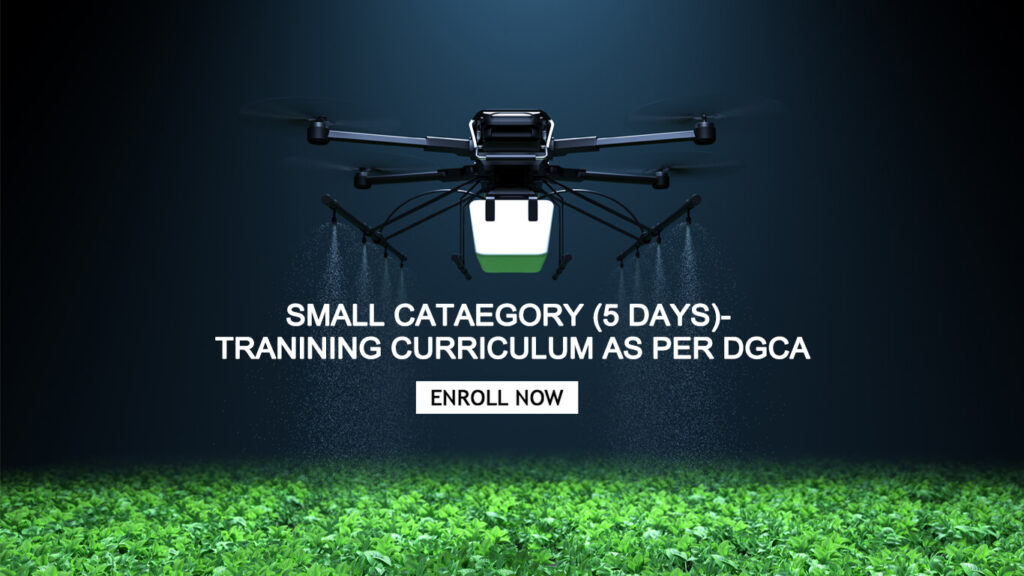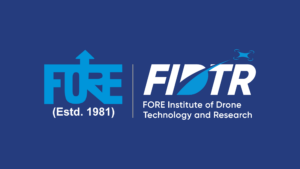FORE Institute of Drone Technology and Research (FIDTR) stands at the forefront of innovation, pushing the boundaries of drone technology and spearheading the responsible use of unmanned aerial systems. As the world increasingly embraces the potential of drones, one area where their impact is particularly profound is in last-mile delivery services. In this article, we delve into the transformative power of drones in redefining logistics and revolutionizing the way goods are delivered to our doorsteps. Join us as we explore the growing influence of drones in the realm of last-mile delivery and how FIDTR is at the vanguard of this revolution.
Enhancing Speed and Efficiency
Traditional last-mile delivery methods often face obstacles such as traffic congestion, limited parking, and inefficient routing. Drones eliminate many of these challenges by taking to the skies. With the ability to bypass ground-level obstacles, drones can significantly reduce delivery time and provide faster service to customers. By adopting drones, delivery companies can optimize their routes, minimize delays, and achieve higher delivery speeds, ultimately enhancing overall efficiency.
Overcoming Geographical Barriers
Drones possess the remarkable capability to reach remote and inaccessible locations. This is particularly advantageous in rural areas where conventional transportation methods struggle to provide timely and cost-effective deliveries. By utilizing drones, logistics companies can ensure prompt delivery of essential goods to customers residing in remote regions, eliminating the geographical limitations faced by traditional delivery systems.
Ensuring Cost-Effective Operations
Drones can help companies streamline their last-mile delivery operations and achieve significant cost savings. With reduced reliance on fuel-powered vehicles and human labor, logistics providers can minimize expenses associated with fleet maintenance, fuel consumption, and labor costs. Additionally, drones offer scalable solutions, allowing companies to handle varying delivery volumes without incurring substantial overhead costs. The cost-effectiveness of drone-powered last-mile delivery services is a key driver in the adoption of this technology.
Improving Customer Experience
Fast and reliable deliveries are essential for providing exceptional customer experiences. Drones offer unprecedented speed and efficiency, ensuring that customers receive their orders promptly. With real-time tracking and notifications, customers can monitor the progress of their deliveries and have a clearer understanding of the estimated arrival time. The seamless and swift nature of drone deliveries helps build customer trust and satisfaction, leading to increased loyalty and repeat business.
Enhancing Environmental Sustainability
Reducing carbon emissions and mitigating the environmental impact of logistics operations are significant concerns for businesses today. Drones offer an eco-friendly alternative by utilizing electric propulsion systems and emitting zero emissions during flight. By adopting drone technology for last-mile delivery, companies can contribute to a greener future by reducing their carbon footprint and promoting sustainable practices.
Regulatory Challenges and Future Outlook
While the potential of drones in last-mile delivery is promising, there are regulatory challenges to address. Governments worldwide are developing guidelines to ensure safe and responsible drone operations. Collaborations between regulatory bodies, drone manufacturers, and logistics companies are crucial to establishing standards and frameworks that support the safe integration of drones into the airspace.
Looking ahead, the future of last-mile delivery is expected to witness exponential growth in drone utilization. Advancements in automation, artificial intelligence, and battery technology will further enhance the capabilities and range of drones, making them even more efficient and reliable. As the industry evolves, the FORE Institute of Drone Technology and Research remains committed to pushing the boundaries of drone technology and exploring innovative solutions to transform logistics practices.
Conclusion
Drones are redefining last-mile delivery services, offering unprecedented speed, efficiency, and sustainability. By embracing this transformative technology, logistics companies can optimize their operations, overcome geographical barriers, and enhance the customer experience. With a focus on research, development, and collaboration, the FORE Institute of Drone Technology and Research is at the forefront of driving innovation and shaping the future of the logistics industry.


